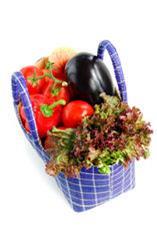
The UK food market faces a forked path with health standards and premium products standing against a possibility of returning to the dire conditions of the early 90s, according to new research from Key Note.
According to Food Industry, a new market review from market researchers Key Note, the food market may experience similar trends to those seen in the downturn of the early 1990s.
Throughout the boom years of the 1980s, UK consumers became increasingly interested in the environment and traded up their purchases to premium goods, but interest in ‘green’ matters evaporated quickly during the economic downturn that followed. Sales of premium goods slowed sharply as consumers focused on simply surviving the recession.
The major grocery retailers have spent the past decade trying to move their own-label products upmarket. However, as a result of the current economic downturn and the resulting competition from discounters, they are now refocusing on their value product ranges.
Between 2004 and 2008, consumer expenditure on the food items covered by this Market Review rose by an estimated 22.3 per cent at current prices, to £61.45 billion. Driven by food-price inflation, growth accelerated sharply in 2007, but it slowed to some extent in 2008 as a result of the economic downturn.
The rise in food prices has become one of the key issues affecting consumers in the UK. The economic downturn certainly appears to be having an impact on sales of organic food in particular.
Key Note forecasts that the UK retail food market will grow by 4.2 per cent at current prices in 2009, but this increase will largely reflect food-price inflation. Consumers are expected to become even more cost conscious and Key Note believes that sales of many premium-priced goods will stagnate.
Assuming that the global economy continues to enjoy positive growth, Key Note anticipates that prices for meat, fish, fruit, vegetables and basic commodities such as wheat will remain under upward pressure.



